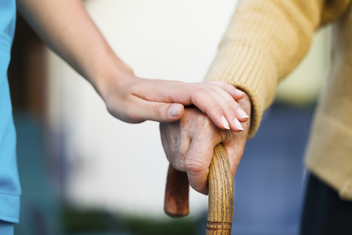Being More Kind
“And you can always, always give something, even if it is only kindness!” The words of Anne Frank from The Diary resound within us. Rachel Scott, the first student killed at Columbine and a modern day heroine, created “A Chain Reaction of Kindness and Compassion”. In 2011 the Enumclaw School District brought us Rachel’s Challenge, and the two mile long paper links containing acts of kindness and compassion, either done or observed, spread at Pete’s Pool changed our culture. The school could measure the difference with students. Those in the community who participated could tell the difference in our own lives.
From the school district’s 2014 initiative based on The Happiness Advantage, by Shawn Achor who taught science of happiness at Harvard, we learn of several practices designed to increase one’s own happiness. LINCCK Civility • Compassion • Kindness, a plateau group committed to healthy relationships and whose name was derived from Rachel’s Challenge, brings “SoHaPP” to the community. For when you are strengthening this habit, try to perform at least one, if not a couple, random acts of kindness everyday. Do this and it will become a habit, and will promptly increase your level of happiness.
For it appears one of the quickest ways to become happy is performing an act of kindness. Whether altruism to a friend or stranger, donating goods or services to the community or environment, you will release endorphins inside your brain, resulting in joy. People report a decrease in awareness and intensity of physical pain after doing a good deed for someone else. Studies show acts of kindness with no expectation of reward decreases stress. Listen attentively and non-judgmentally when another speaks, to better understand what might be truly helpful. Pay it forward, creating a cascade of cooperation. Teach children to be givers of kindness, and increase their feelings of happiness and improve their friendships.
It is odd to think helping another, which elevates their well-being, actually increases your own happiness, but it is true. A win - win for all. Help someone who’s down on their luck, offer a hand when other arms are full, give guidance to those who are lost. If you see someone being left out, teased or hurt, a bit of your heart hurts too and you must react to this heart-ache. Be brave, as compassion outweighs the fear of acting. Even small efforts work wonders. From a full day’s worth of labor, a thank you note or compliment, to even a simple smile or ‘Hello’, look for opportunities to be kind. You are really doing it for them, but are also doing it for you. Be selfish and have compassion for yourself, accomplished simply with random acts of kindness to others. Nurture a giving spirit, and it will lead to vibrant well-being.
From the school district’s 2014 initiative based on The Happiness Advantage, by Shawn Achor who taught science of happiness at Harvard, we learn of several practices designed to increase one’s own happiness. LINCCK Civility • Compassion • Kindness, a plateau group committed to healthy relationships and whose name was derived from Rachel’s Challenge, brings “SoHaPP” to the community. For when you are strengthening this habit, try to perform at least one, if not a couple, random acts of kindness everyday. Do this and it will become a habit, and will promptly increase your level of happiness.
For it appears one of the quickest ways to become happy is performing an act of kindness. Whether altruism to a friend or stranger, donating goods or services to the community or environment, you will release endorphins inside your brain, resulting in joy. People report a decrease in awareness and intensity of physical pain after doing a good deed for someone else. Studies show acts of kindness with no expectation of reward decreases stress. Listen attentively and non-judgmentally when another speaks, to better understand what might be truly helpful. Pay it forward, creating a cascade of cooperation. Teach children to be givers of kindness, and increase their feelings of happiness and improve their friendships.
It is odd to think helping another, which elevates their well-being, actually increases your own happiness, but it is true. A win - win for all. Help someone who’s down on their luck, offer a hand when other arms are full, give guidance to those who are lost. If you see someone being left out, teased or hurt, a bit of your heart hurts too and you must react to this heart-ache. Be brave, as compassion outweighs the fear of acting. Even small efforts work wonders. From a full day’s worth of labor, a thank you note or compliment, to even a simple smile or ‘Hello’, look for opportunities to be kind. You are really doing it for them, but are also doing it for you. Be selfish and have compassion for yourself, accomplished simply with random acts of kindness to others. Nurture a giving spirit, and it will lead to vibrant well-being.
